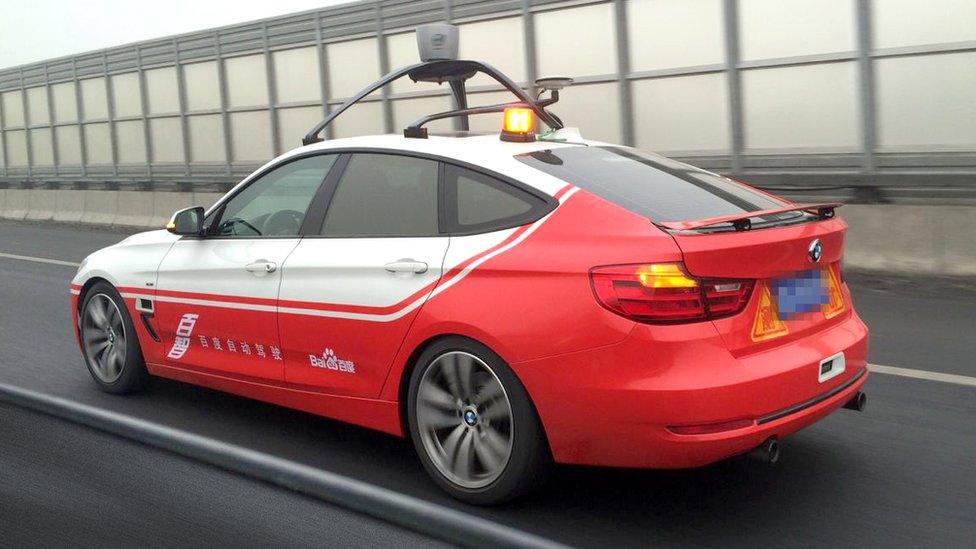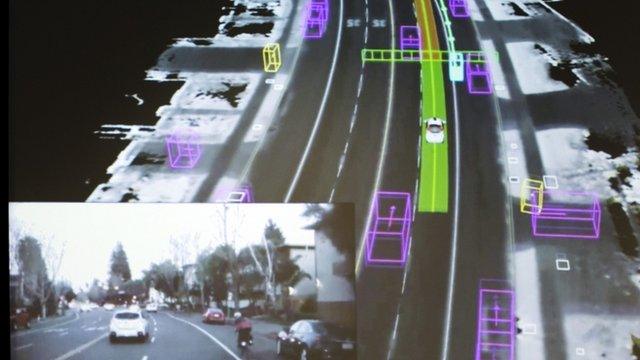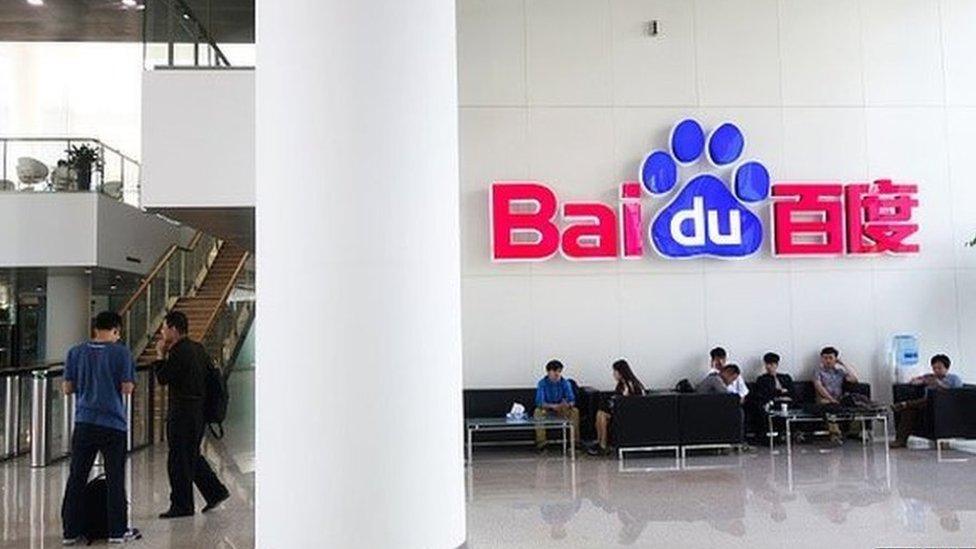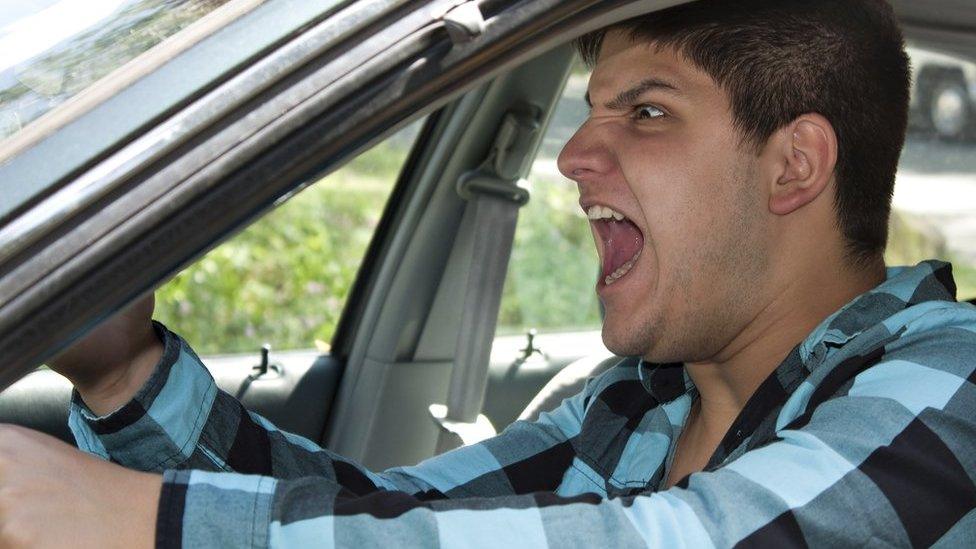Chinese city Wuhu embraces driverless vehicles
- Published

Baidu has been developing an artificial intelligence system to help its driverless cars navigate
Chinese hi-tech firm Baidu has unveiled a plan to let driverless vehicles range freely around an entire city.
The five-year plan will see the autonomous cars, vans and buses slowly introduced to the eastern city of Wuhu.
Initially no passengers will be carried by the vehicles as the technology to control them is refined via journeys along designated test zones.
Eventually the test areas will be expanded and passengers will be able to use the vehicles.
"They want to be the first city in the world to embrace autonomous driving," said Wang Jing, Baidu's head of driverless cars, in an interview with the BBC's Click programme.
"This is the first city that is brave enough, daring enough and innovative enough to test autonomous driving," he said.
Efficiency drive
Mr Jing said the first phase of the trial would last about three years and would involve restricted areas in the city where buses, mid-size vans and cars would be tested.
After three years, the areas of the city in which the autonomous cars can drive will be expanded and the service will be commercialised to allow some of the three million inhabitants of Wuhu to use it.

Google's autonomous cars have logged thousands of miles alongside regular traffic
After five years, he said, the whole city will be open to the driverless vehicles which will mix with human-driven cars, trucks and buses.
Mr Jing said the city was keen to use robot vehicles because they were a much more efficient way to transport people and goods.
The current model in which many households own a car was a "great waste" of resources, he said, because most of the time private cars stood idle. By contrast, he said, robot cars would be much more heavily used.
A study released this week suggested that greater use of driverless cars could promote congestion. The study by accounting group KPMG suggested the robot cars could be used widely by groups, such as the young and old, who do not usually drive thereby increasing the numbers of vehicles on the road.
Mr Jing said he hoped the Wuhu trial would lead to projects elsewhere.
"We are trying to give the experience and data to the central government so they can see the benefit and that will make it easier for us to push to other cities in China," he said. "We hope it will be a starting point that lets us take it to other countries."
Baidu is known to be working closely with German car maker BMW on the development of control systems for autonomous vehicles. The cars emerging from that partnership as well as others made by Chinese car maker Chery will be used in the Wuhu trial.
Many tech firms, including Google, and car manufacturers are also working on control systems for robot cars.
- Published13 May 2016

- Published3 May 2016

- Published28 April 2016

- Published10 May 2016
